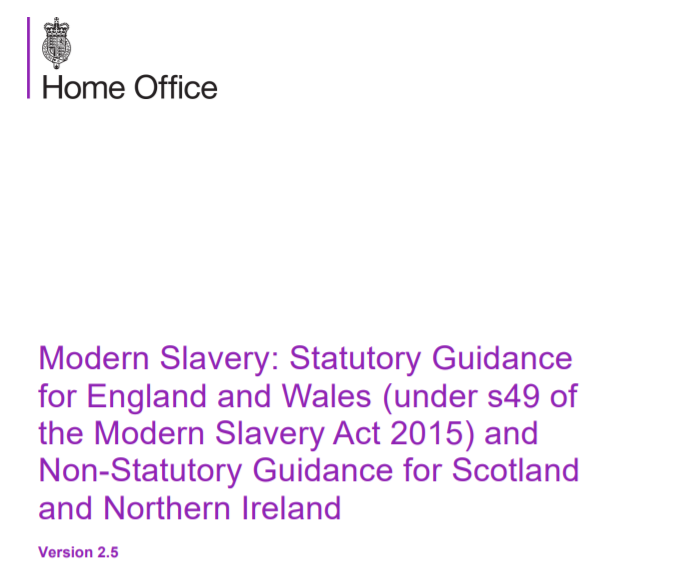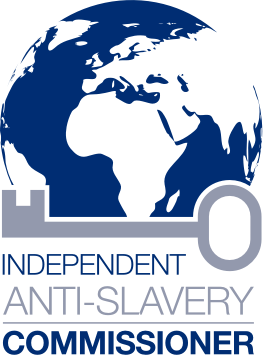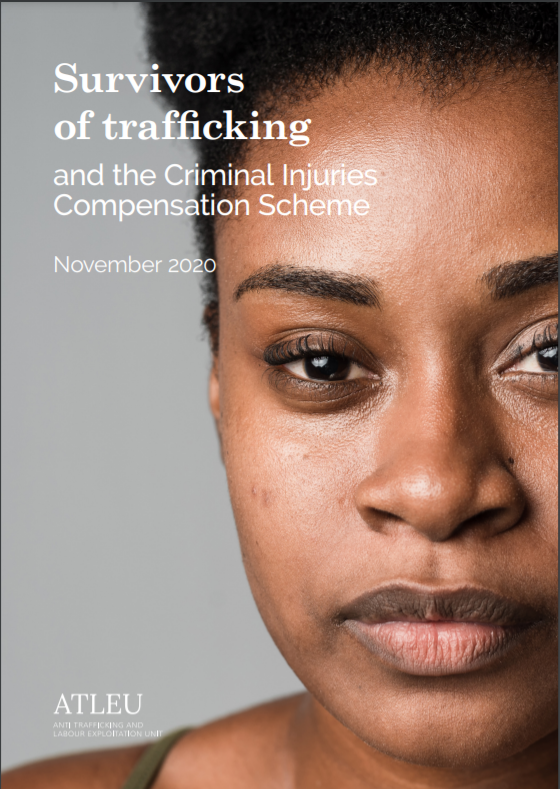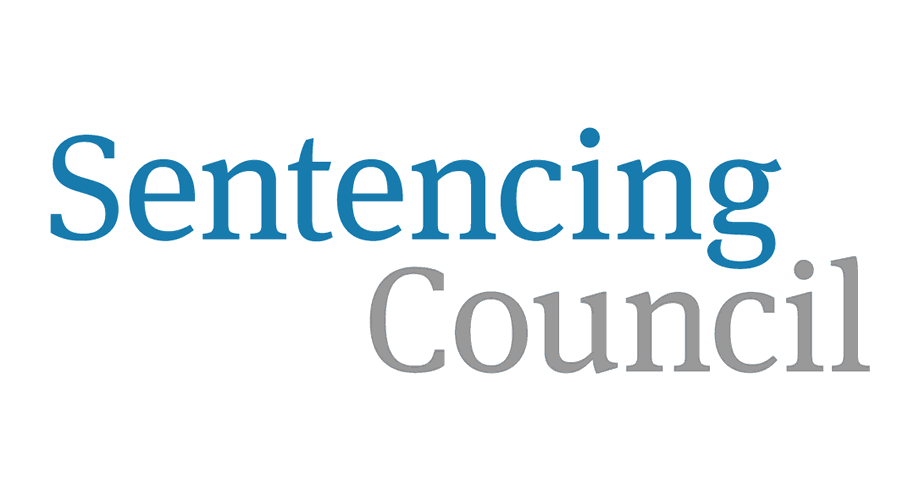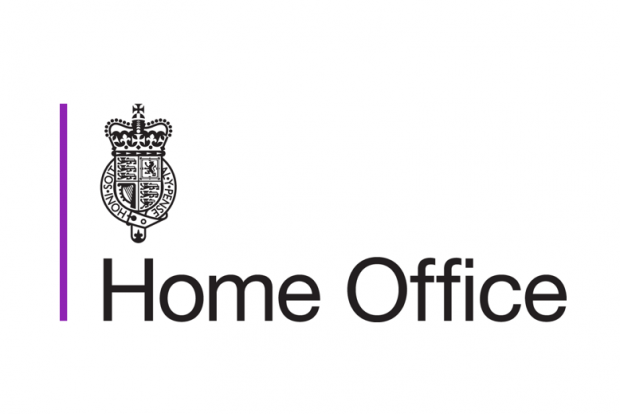
Results from the third quarter (July to September) of 2025 show an ever steeper upward trend in referrals to the National Referral Mechanism and the Duty to Notify process. Both statistics show record numbers of potential victims of modern slavery in the United Kingdom. Key results from the Home Office offical statistics are:
- 6,414 potential victims of modern slavery were referred to the Home Office from July to September 2025, representing a 13% increase compared to the previous quarter (5,689) and a 35% increase from July to September 2024 (4,752)
- the number of referrals received this quarter is the highest number of referrals received in a single quarter since the NRM began in 2009
- 81% (5,165) were sent to the Single Competent Authority (SCA) for consideration and 19% (1,249) to the Immigration Enforcement Competent Authority (IECA)
- the most common nationalities referred this quarter were UK (20%; 1,312), Eritrean (16%; 1,044) and Somali (10%; 662)
- this was the highest number of referrals for UK, Eritrean and Somali nationals in a quarter since the NRM began
- 112 disqualification requests were made this quarter, representing a 50% increase compared to the previous quarter (56)
- 6,470 reasonable grounds and 6,708 conclusive grounds decisions were issued this quarter; of these, 64% of reasonable grounds and 68% of conclusive grounds decisions were positive
- the number of conclusive grounds decisions issued this quarter was the highest in a quarter since the NRM began
- the number of cases awaiting a conclusive grounds decision continues to fall, with 9,107cases awaiting a decision at the end of September 2025, a reduction of 21% from the previous quarter (11,645) and a reduction of 69% from the peak at the end of 2022 (29,275)
- the average age of cases awaiting a conclusive grounds decision at the end of June 2025 was 141 days, as compared to 304 days at the end of the previous quarter
- the Home Office received 2,001 reports of adult potential victims via the DtN process, the highest in a single quarter since the DtN began
See the full Home Office report for offical statistics here.

Statistics for the National Referral Mechanism in the UK, for third quarter in 2024 (July to September) includes a summary and breakdown of the number of potential victims of modern slavery referred into the (NRM) or via the Duty to Notify (DtN) process.
Key results:
- 4,758 potential victims of modern slavery were referred to the Home Office from July to September 2024, representing a 10% increase compared to the previous quarter (4,312) and a 15% increase from July to September 2023 (4,132)
- the number of referrals received this quarter was the highest since the NRM began in 2009, a slight increase from the previous record in the period from January to March 2023 (4,742)
- 87% (4,127) were sent to the Single Competent Authority (SCA) for consideration and 13% (631) to the Immigration Enforcement Competent Authority (IECA)
- the most common nationalities referred this quarter were UK (23%; 1,092), Albanian (11%; 523) and Vietnamese (11%; 514)
- 4,953 reasonable grounds and 5,188 conclusive grounds decisions were issued this quarter; the number of conclusive grounds decisions issued was the highest for any quarter since the NRM began, representing a 35% increase from the previous record in the period from January to March 2024 (3,838)
- 50% of reasonable grounds (2,500) and 52% of conclusive grounds decisions (2,705) were positive
- the Home Office received 1,501 reports of adult potential victims via the DtN process, the highest in a quarter since the DtN began in 2015 and a 6% increase from the previous record in the period from January to March 2023 (1,420)
See the full Home Office report here.

Statistics for the National Referral Mechanism in the UK, for second quarter in 2024 (April to June) includes a summary and breakdown of the number of potential victims of modern slavery referred into the (NRM) or via the Duty to Notify (DtN) process.
Key results:
- 4,316 potential victims of modern slavery were referred to the Home Office from April to June 2024, representing a 5% decrease compared to the period from January to March 2024 (4,521) and a 8% increase from April to June 2023 (3,992)
- 73% (3,142) of potential victims were male and 27% (1,167) were female; this was the second highest quarterly number of referrals for females since the NRM began
- 82% (3,521) of referrals were sent to the Single Competent Authority (SCA) for consideration and 18% (795) to the Immigration Enforcement Competent Authority (IECA)
- the most common nationalities referred this quarter were UK (26%; 1,135), Albanian (13%; 574) and Vietnamese (13%; 558)
- 4,515 reasonable grounds and 3,126 conclusive grounds decisions were issued this quarter; of these, 53% of reasonable grounds and 64% of conclusive grounds decisions were positive
- the Home Office received 1,172 reports of adult potential victims via the DtN process, representing a 4% increase compared to the period from January to March 2024
See the full Home Office Report here.

Statistics for the National Referral Mechanism in the UK, for first quarter in 2024 (January to March) includes a summary and breakdown of the number of potential victims of modern slavery referred into the (NRM) or via the Duty to Notify (DtN) process.
Key Results:
- 4,524 potential victims of modern slavery were referred to the Home Office from January to March 2024, representing a 9% increase compared to the period from October to December 2023 (4,134) and a 5% decrease compared to the period from January to March 2023 (4,738)
- 73% (3,291) of potential victims were male and 27% (1,226) were female; this is the highest quarterly number of referrals for females since the NRM began
- 80% (3,628) of referrals were sent to the Single Competent Authority (SCA) for consideration and 20% (896) to the Immigration Enforcement Competent Authority (IECA)
- the most common nationalities referred this quarter were UK (24%; 1,105), Albanian (17%; 791) and Vietnamese (11%; 493)
- 5,161 reasonable grounds and 3,893 conclusive grounds decisions were issued this quarter; of these, 55% of reasonable grounds and 48% of conclusive grounds decisions were positive
- the number of reasonable grounds decisions and conclusive grounds decisions issued by the competent authorities were both at their highest for a quarter since the NRM began
- the Home Office received 1,125 reports of adult potential victims via the DtN process
See the full Home Office Report here.
Earlier in November 2021, UK’s Home Office published new statutory guidance on identifying and supporting modern slavery victims. Aimed at competent authority staff in England and Wales, the guidance explores what amounts to slavery, human trafficking and exploitation.
The guidance emphasis that human smuggling is not human trafficking and explains the differences between them, as well as, providing a list of myths about modern slavery and dispelling them.
The guidance also emphasises that competent authority staff, while not First Responders, should be aware of the indicators of modern slavery. It further explains system of identifying victims, lists the non-public authorities that are First Responders and further lists non-First Responder Organisations involved in tacking modern slaver and human trafficking.
The guidance then focuses on the process of referring potential victims, working with vulnerable people and the NRM decision making process. Lastly, it explores the support for adult and child victims.
Please see the government website for the full guidance.
The review, ‘The role of the financial sector in eradicating modern slavery: CEOs respond to the Independent Anti-Slavery Commissioner’, follows on an earlier engagement of the Independent Anti-Slavery Commissioner with the Themis and the Tribe Freedom Foundation and the joint report published in January 2021, ‘Preventing Modern Slavery and Human Trafficking: an Agenda for Action across the Financial Services Sector’.
The Independent Anti-Slavery Commissioner has since written to CEOs of leading companies within the financial services sector. The respondents included international banks, investment platforms, building societies and digital payment companies.
The responses received by the Independent Anti-Slavery Commissioner showed some good practice, financial services sector had not integrated modern slavery risks across all its business processes. The Commissioner has made five recommendations to the financial services sector.
To find the full list of recommendations and the full report, please see here.
‘Survivors of trafficking and the Criminal Injuries Compensation Scheme’ is a report by the Anti-Trafficking and Labour Exploitation Unit (ATLEU) from November 2020. ATLEU is a charity supporting victims of trafficking and labour exploitation and providing legal representation to victims.
The report is based on 30 cases conducted by ATLEU themselves and further findings from a survey of professionals. The purpose of the to survey was to identify if the experiences of other professionals representing trafficking victims in making CICS claims were similar to those of survivors represented by ATLEU. The survey was sent to solicitors and support workers working with survivors in making CICS claims.
ATLEU concludes that the CICA scheme is not fit for purpose and is not accessible to the majority of survivors. From ATLEU’s experience, the vast majority of survivors are refused compensation in circumstances where it ought to be granted. They have made extensive recommendations as to the improvement and modifications of CICA, which can be found in the full report.
You can find the full ATLEU report here.
Following a consultation, the Sentencing Council has published new sentencing guidelines for offences under the Modern Slavery Act 2015.
The new guidelines will come into effect on 1st October 2021 and will be used by magistrates and judges when sentencing offenders for offences under sections 1, 2, 4 and 30 of the Modern Slavery Act 2015. This means the offences covered by the sentencing guidelines include: slavery, servitude, forced or compulsory labour; human trafficking; committing an offence with intent to commit human trafficking; and breach of a slavery and trafficking prevention order or a slavery and trafficking risk order.
The sentencing guidelines aim to promote consistency in approach in sentencing for modern slavery offences. Under the new guidelines, offenders could face up to 18 years in prison.
For the Sentencing Council’s announcement and guidelines please see here.
The Government has published its response to the ‘Transparency in supply chains consultation’, covering changes to mandatory reporting for commercial organisations and extension of mandatory reporting requirements to the public sector. The Government commits to legislate on
- Mandate specific topics for reporting
- Introduce mandatory reporting for public bodies with a budget of £36 million or more
- Specify that public bodies will be allowed to report inn groups and clarify how
- Require organisations to report to a single reporting deadline
- Clarify the requirements on Board approval for commercial organisations
- Require statements published by public bodies to be signed off by the accounting officer, chief executive or equivalent role; and approved by the senior management body
The Government has indicated it will consider enforcement options and legislative change to introduce civil penalties for non-compliance with s.54 reporting, and the potential creation of an enforcement body.
The Government has committed that the Home Office will publish further guidance both for commercial organisation and public bodies ahead of any legislative changes. The Government also continues to develop a new Government-run reporting service which organisations will be encouraged to use before any legislative mandate.
Access the full Government response here.
The National Referral Mechanism (NRM) is the UK framework for identifying and referring potential victims of modern slavery and ensuring they receive the appropriate support. This statistical bulletin gives a summary and breakdown of the number of potential victims of modern slavery referred into the National Referral Mechanism from 1 January to 31 March 2020 (quarter 1).
Follow this link for the NRM Statistics UK, Quarter 1 2020 – January to March.

